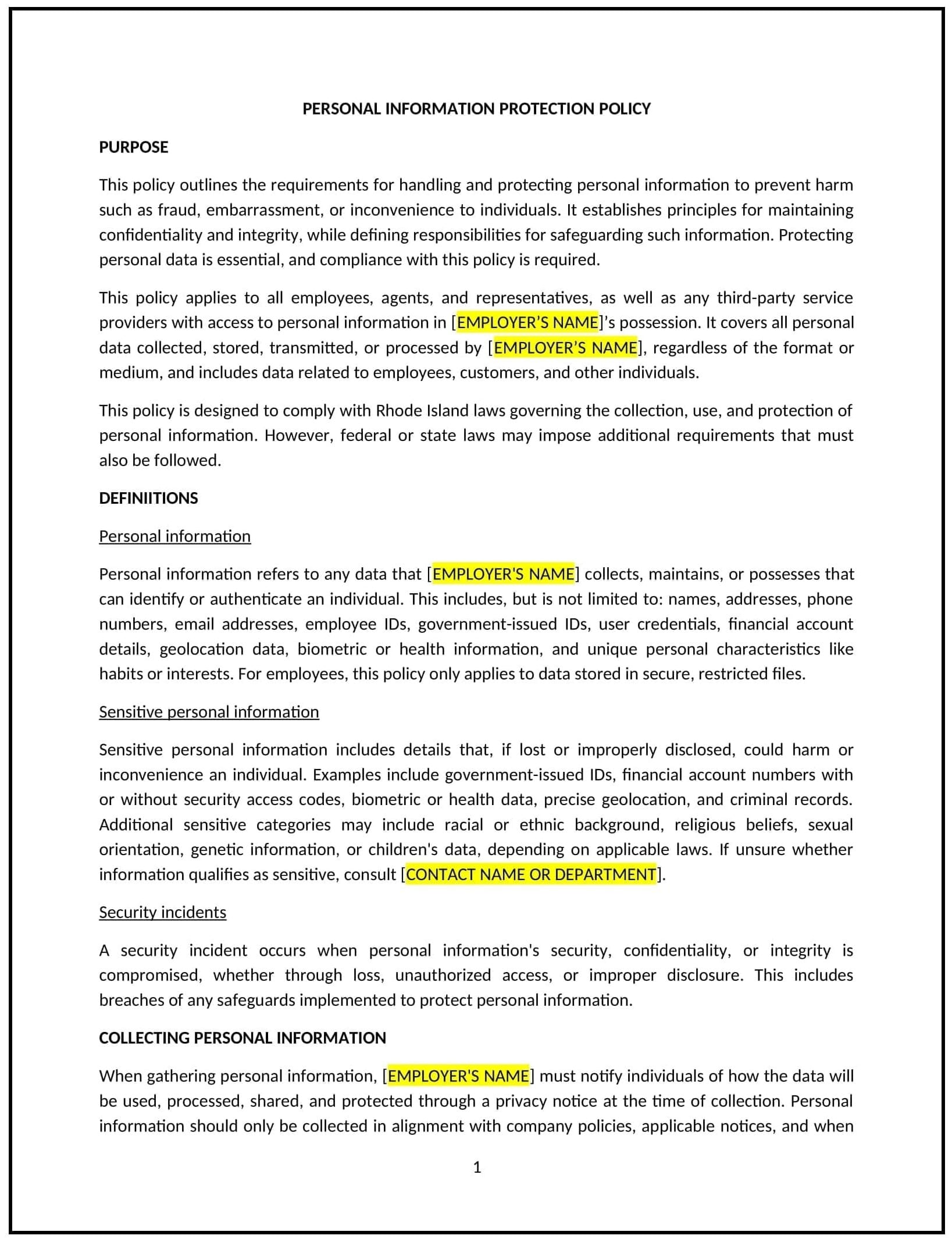Personal information protection policy (Rhode Island): Free template
Got contracts to review? While you're here for policies, let Cobrief make contract review effortless—start your free review now.

Customize this template for free
Personal information protection policy (Rhode Island)
This personal information protection policy is designed to help Rhode Island businesses establish guidelines for safeguarding sensitive employee and customer data. It outlines procedures for collecting, storing, and protecting personal information in compliance with state and federal privacy laws.
By adopting this policy, businesses can reduce the risk of data breaches, maintain trust, and strengthen compliance with privacy regulations.
How to use this personal information protection policy (Rhode Island)
- Define scope: Clarify which types of personal information are covered, such as Social Security numbers, addresses, and financial data.
- Establish data collection procedures: Outline how personal information is collected, including consent requirements and transparency.
- Address storage and access: Provide guidelines for securely storing data and limiting access to authorized personnel.
- Set data retention rules: Specify how long personal information will be retained and procedures for secure disposal.
- Train employees: Educate staff on data protection practices and the importance of safeguarding personal information.
- Monitor compliance: Regularly review data handling processes to ensure adherence to the policy.
- Review and update: Assess the policy annually to ensure it aligns with evolving privacy laws and business needs.
Benefits of using this personal information protection policy (Rhode Island)
This policy offers several advantages for Rhode Island businesses:
- Reduces risks: Minimizes the likelihood of data breaches and unauthorized access to sensitive information.
- Maintains trust: Demonstrates a commitment to protecting employee and customer privacy.
- Ensures compliance: Aligns with Rhode Island privacy laws and federal regulations, such as the Rhode Island Identity Theft Protection Act.
- Enhances transparency: Provides clear guidelines for handling personal information, reducing confusion or disputes.
- Builds reputation: Fosters a positive image by prioritizing data security and privacy.
Tips for using this personal information protection policy (Rhode Island)
- Communicate the policy: Share the policy with employees and include it in the employee handbook.
- Provide training: Educate staff on data protection practices and the importance of safeguarding personal information.
- Monitor compliance: Regularly review data handling processes to ensure adherence to the policy.
- Address issues promptly: Take corrective action if data breaches or policy violations occur.
- Update regularly: Assess the policy annually to ensure it aligns with evolving privacy laws and business needs.